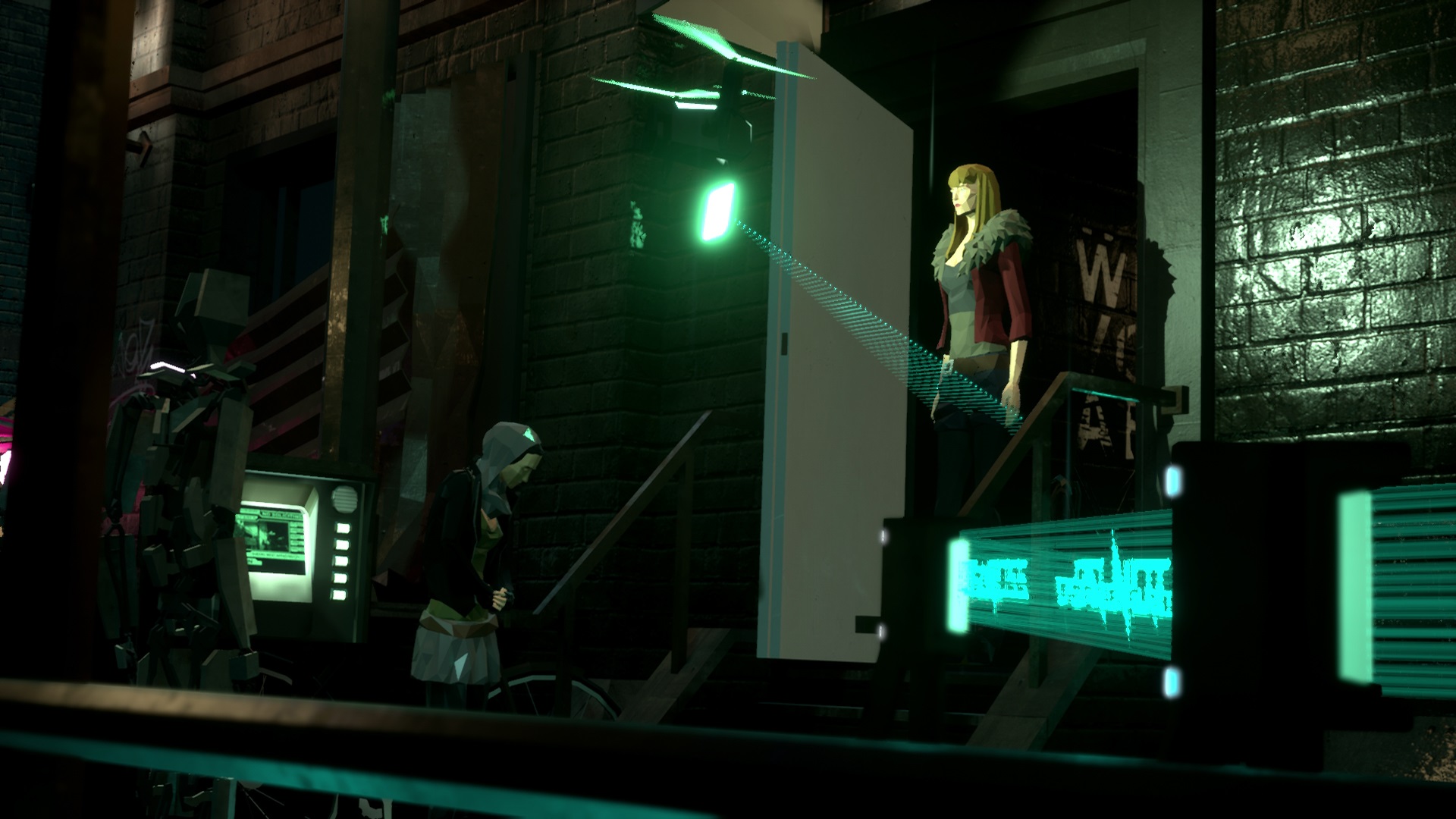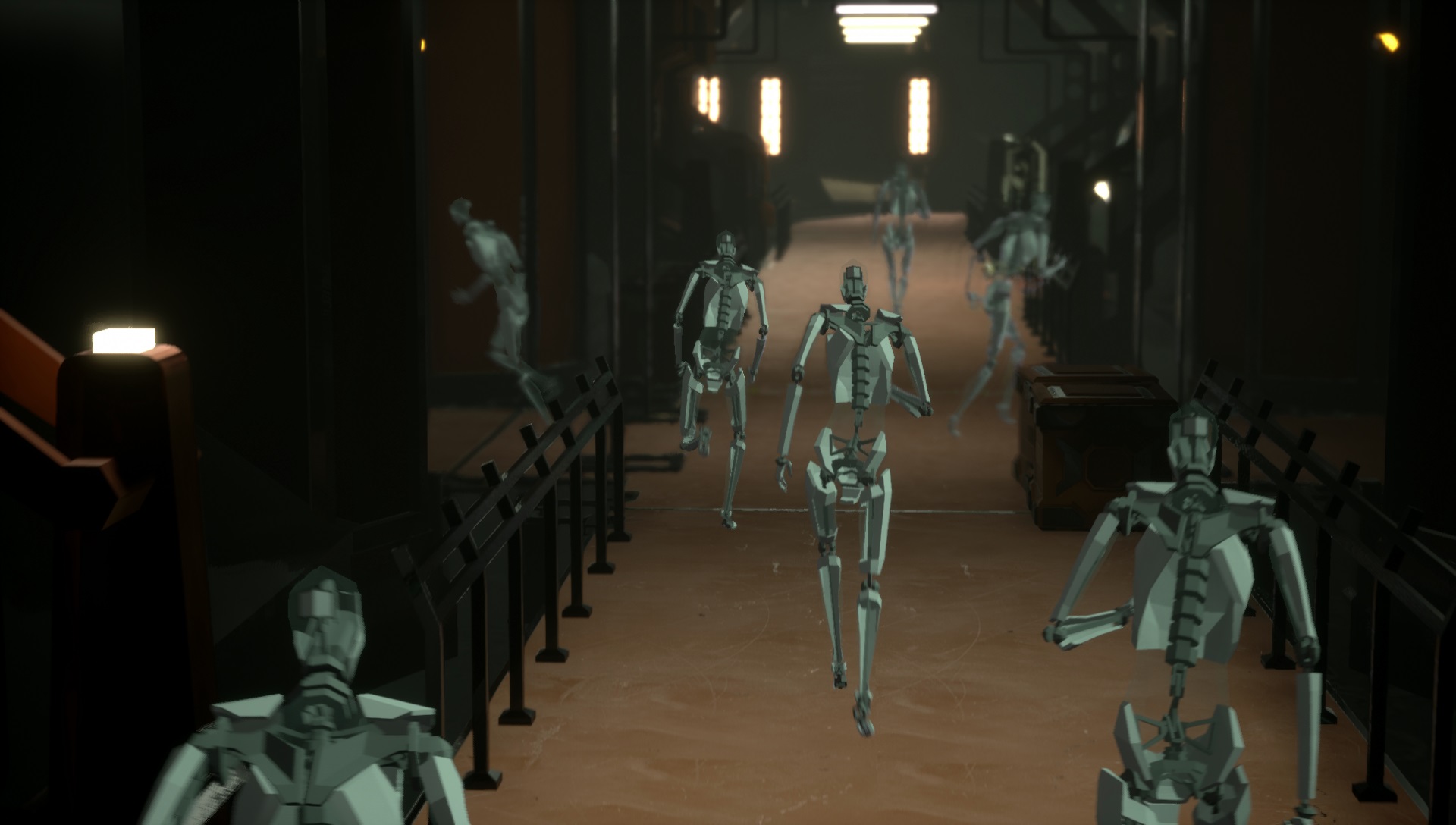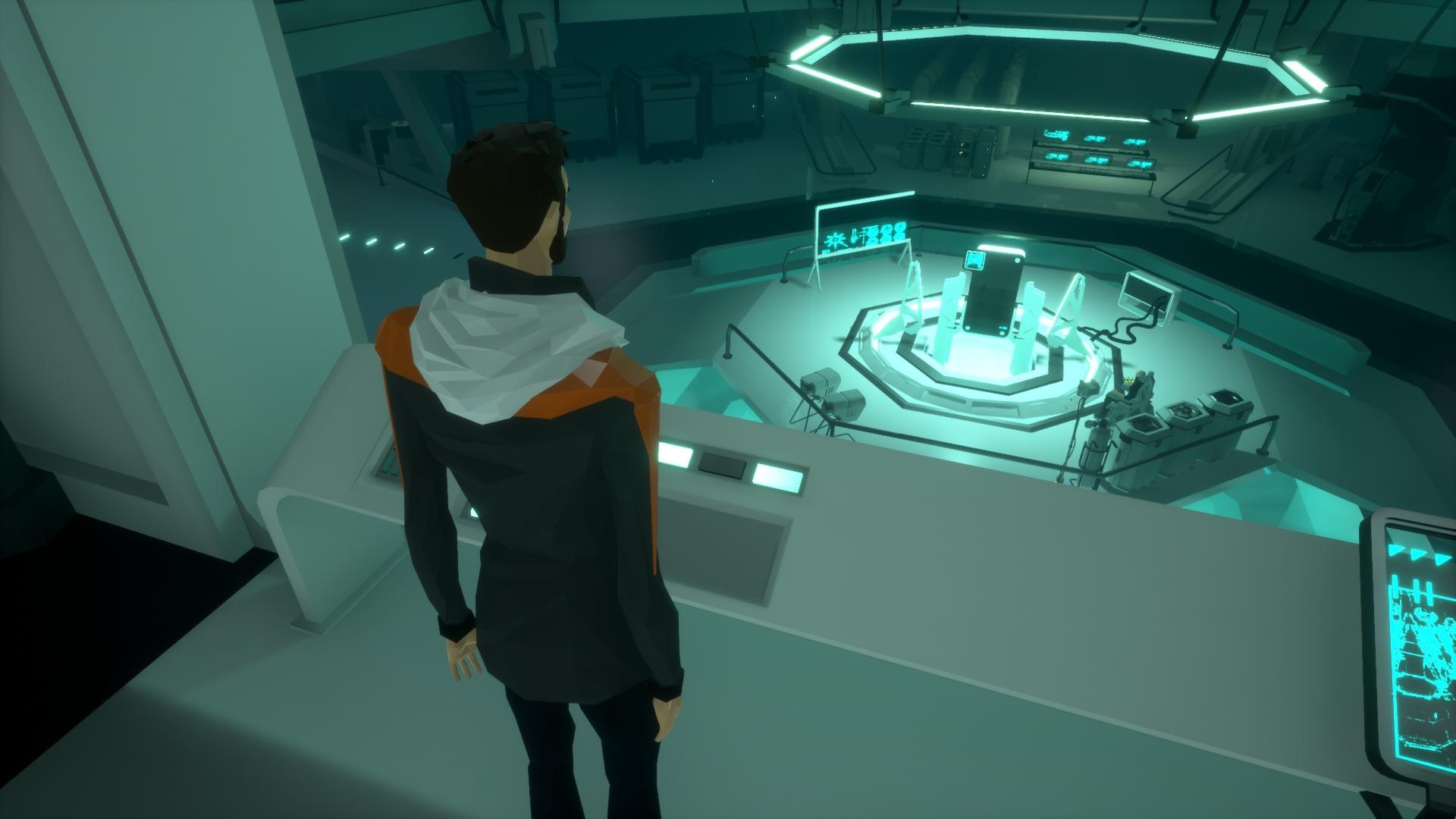Every eighteen months the power of computers doubles, and with this increase in power comes a wave of new technology. The last ten years have brought us smartphones, social media, drones, and even virtual reality, while new revolutions like automated vehicles are just over the horizon.
Our society has already been radically altered by the technology available to us. But if technology keeps advancing in this manner, how else will it change our lives? How, indeed, will it change us? These are merely two of the questions sought to be answered by State of Mind – a near future adventure where players unravel a global conspiracy, in a society of ubiquitous digitalism, surveillance and transhumanism.
“Transhumanists believe that at some point in 30 years’ time, computers, artificial intelligence will exceed human intelligence,” says Martin Ganteföhr, creative director of State of Mind. “From then on, a huge digital revolution is going to happen. We’re going to be able to upload our minds. We’re going to be immortal. We’re going to reign over matter, and be whoever we want to be.”

There are different schools of thought about how this digital turning-point, known as the AI Singularity, will affect our society. Some transhumanists, like Google’s Engineering Director Ray Kurzweil, believe that it will result in a technological utopia, where machines will run society while humans enjoy a life of luxury. Others, such as Tesla owner Elon Musk, believe this technological revolution will bring about the fall of mankind. State of Mind aims to explore both potential scenarios. “it is about the dualism of two worlds,” Ganteföhr says.
An unsettling vision of the near future players can throw themselves into, State of Mind takes place in Berlin in the year 2048. Dwindling natural resources and sprawling cityscapes have led to scarcity, disease and war. As humanity struggles, technology thrives. Robots have replaced large sections of the workforce, and every aspect of life is watched and recorded by surveillance drones.
Sitting alongside this physical dystopia is a virtual utopia, created using the data amassed by the drones and cameras that watch humanity every moment of every day. Far from being a simple distraction, the people of Berlin can have their minds uploaded into this hyper-real simulation, exchanging the challenges of reality for life in a virtual paradise.
Keep up to date with the most important stories and the best deals, as picked by the PC Gamer team.

Players will explore a world with a rich and unique visual style, combining realistic environments with low-poly characters. The two worlds the players will explore have their own distinctive styles. Berlin is dark and gritty streets are swathed in a neon glow, while the virtual world glitters pristine, all clean lines and crisp colours.
To explore State of Mind, players assume the role of journalist Richard Nolan, as well as five additional playable characters. Nolan is a reporter specialising in investigating stories that poke holes in the promises of the city’s technocrats, uncovering scandals ranging from illicit data harvesting to illegal drone surveillance. “Over the course of his work, he’s become a little bit of a luddite,” Ganteföhr explains. “He rejects technology. He would be the kind of person translated to today, who would be carrying a Nokia phone.”
Early in the game, Richard awakens in hospital after what he believes to be an accident, only to finds that his wife and son have mysteriously disappeared. “Richard finds out in the game that he has been subjected to a mind upload, and the upload went wrong,” Ganteföhr says. “He finds that there is a connection between the two worlds. It’s actually a very personal connection. It is something that affects him very personally.”

State of Mind is a heavily story-focussed game, but there is still plenty of opportunity to explore the city freely. Unravelling this mystery will require players to delve into the most secretive corners of Berlin, using dexterity, deductional skill and research to reconstruct Richard’s past. Indeed, Richard’s own memories will play an important role in the tale. By manipulating images taken from different environments, players can piece together Richard’s memories and then step into them to investigate.
Ganteföhr states that State of Mind’s technological tale has many different layers, one where Richard will be forced to confront his own principles and mistakes he has made in his past. “In trying to investigate what has happened, Richard will be forced to use some of the very technology that he rejects.” As the disappearance of his family broadens into a much larger, global conspiracy, Richard finds himself ever further entangled in the transhumanist web that connects reality with the virtual world.
Ultimately, the fate of humanity will fall into the player’s hands, as they seek to determine what “reality” truly means, where the truth lies between these two very different worlds, and what it means to be human in an age where mind and body are no longer fundamentally connected.
State of mind launches August 15th, available on Steam and GoG. Pre order State of Mind on the following platforms.

